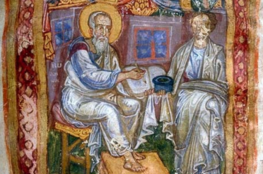If we, traditional Catholics, stop talking about the Second Vatican Council, will the liberals? How about the neo-Catholics? I don’t mean “never mention the Council again.” Rather, I mean going on almost endlessly — and negatively — about this-or-that ambiguity in the conciliar texts or this-or-that problematic interpretation, implementation, or downright imposition in the name of the “Spirit of the Council.” Despite the hopes of some traditionalists, Vatican II is not simply going to go away. I suspect that most would prefer that, given present realities, our current Pope refrain from calling another council to “update,” “discuss,” or “clarify” Vatican II. Let it rest. It has only been 50 years. And while there may be a good argument out there that the last five decades has sucked dry the Council’s relevancy, that doesn’t mean it needs an official point-by-point overhaul either. To attempt one now would likely lead to further, not less, ambiguities. Moreover, it seems as if the present leadership of the Church is even more divided and, in some instances, doctrinally suspect than the body of fathers who came together in October 1962 to inaugurate a new “springtime for the Church.”
None of this is to say that serious critical-historical work shouldn’t be continued for the purpose of clarifying what exactly happened at Vatican II, why it happened, and what the consequences have been. Roberto de Mattei’s The Second Vatican Council: An Unwritten Story is, to say the least, a breath of fresh air for those of us who have been choking on the fumes of the triumphalistic narrative of the Council that the neo-Catholic apologetics machine has been emitting for decades. As more private journals, letters, official notes, and other relevant documents come to light, I suspect that the portrait of the Council, as unedifying as it already is, will become even more disturbing — and that’s a good thing. Contrary to the claims of some, there is nothing intrinsically irreverent, spiritually dangerous, or — gosh — sinful about casting light on the Council and its aftermath. Hopefully the results of this research will serve as a warning to a future Pontiff who might, for good reasons or ill, get it into his head that what the Church needs is another round of rethinking. Factionalism, media manipulation, and procedural incursions ruled the day at Vatican II. It would be a great shame if they weren’t addressed before any new council is convened. (Let me stress again that such a convocation should not occur now nor, perhaps, for another century.)
So what do I mean when I say that traditional Catholics probably shouldn’t go on about the Council? What I mean is that we should stop complaining about it. It happened; it has been a real disaster; but the council itself (not the crisis it engendered) is over. So let’s work with it. Instead of leaving the Council’s dogmatic documents open to the freewheeling interpretation of liberals and other renovationists, shouldn’t traditional Catholics actually do what they want officials in the Church to do, namely read the Vatican II texts in a traditional manner? Where ambiguities exist, clarify them in the light of tradition and where clearly orthodoxy abides, let that orthodoxy be known. The “hermeneutic of continuity,” so far at least, has been used to cover over Vatican II’s problems while absolutizing that council; that needs to stop. Traditional Catholics, many of whom often have a steadier eye toward the pre-1962 magisterium, can work to establish an authentically continuous interpretation of the Second Vatican Council. Perhaps traditionalists cannot complete that work, but if not, then wouldn’t it be prudent to turn to the Congregation for the Doctrine of the Faith (CDF) to ask for clarification? If there are tensions between the pre- and post-conciliar magisterium (and there are), then traditional Catholics should feel emboldened enough to ask the CDF for answers. That’s its job after all. If, however, we choose to continue lamenting the Council and wishing it had never occurred, then who controls the Council’s interpretation? Who develops this “spirit of the Council” which, so the story goes, mandated theological anarchy, disciplinary laxity, and liturgical banality? Certainly not us.


